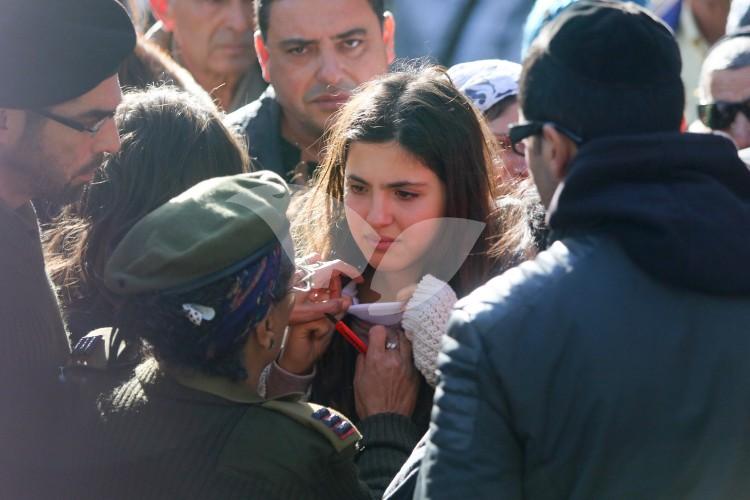Israeli Views on Women Reflect Society's Divisions
Jerusalem, 8 March, 2017 (TPS) -- WIZO (Women’s International Zionist Organization), one of Israel’s biggest and oldest women’s organizations, commissioned an international women’s day poll to examine Israeli society’s attitudes towards women.
Not surprisingly, the results showed major differences in the way different groups regard women, and their place and role in society.
Just over half the population (54%) believes women face discrimination in Israel. Among 4 groups, only a minority answered that there is gender discrimination in Israel. These are men, people who identify themselves as religious, and people who either have only a high school education, or not even that.
The two main issues the poll addressed were family life, especially relating to divorce and motherhood, and women’s roles in the IDF. This is not surprising, given that they are the two most controversial gender rights and role subjects in Israel.
Regarding the role of parents in raising children, 85% said that both should be equally involved. Respondents who said there is gender discrimination in Israel were more likely to support parents being involved equally in raising their kids.
Seventy percent of the respondents said they were in favor of changing Israel’s custody laws, so both parents have the right to equally involved in raising the children after the marriage had dissolved. Israeli law is almost Victorian in this regard, and mandates that the mother be the custodial parent of children under the age of six.
Divorce law in general, and this law in particular, has been generating growing controversy. Since Israel has no civil marriage, marriage and divorce are subject to Rabbinical Courts, which rule according to rabbinical, not civil, law. This puts women at a disadvantage, since rabbinical law is inherently not gender neutral, and biased towards men. The most conspicuous issue is agunot (chained women), the term used to describe a woman who is separated from her husband, but cannot get a divorce. Under Jewish law, the man is required to grant the woman a bill of divorce (get). If he refuses, there is no legal remedy, since rabbinical courts will not issue a get without the man’s explicit consent.
This means that a man can use this as leverage to coerce financial concessions from the woman. As long as a woman remains an agunah, she cannot have any kind of relationship with another man, and if she does, and gets pregnant, the child would be registered as a mamzer (Jewish equivalent of bastard). Mamzerut carries major social and legal stigma and penalties, especially if one leads an observant or traditional lifestyle.
Custody however is dealt with in family courts, according to civil law. Israel is one of the few countries still to have a law that does not recognize joint custody. Under Israeli law a child under 6 automatically goes to the mother, who has full custody. Only in very rare cases, when the mother has been declared unfit, will the courts give custody to the father. Men who want joint custody have to wage prolonged and prohibitively expensive legal battles to get some level of custodial rights, since under the current law, joint custody is a privilege, not a right.
Regarding the role of women in the IDF, another contentious issue in Israeli society, 58% of the respondents said that they supported women serving in combat roles if they want to. 23% were opposed, the rest had no opinion one way or another.
One of the main reasons cited by those who oppose women serving in combat units is that their presence prevents more Haredim (ultra-Orthodox) from serving in the army, especially combat units, since they refuse to serve in combat units with women, claiming it is inherently incompatible with their lifestyle.
Sixty percent of the respondents said that they opposed the demands that IDF institute gender-segregated units to accommodate the Haredim.
The IDF has been gender-integrated since its inception in 1948, reflecting a tradition and legacy going back to the pre-state undergrounds and militias such as the Hagana, the Palmach and the Irgun, which all operated and fought in gender integrated units. After the end of the War of Independence (1949), women were gradually removed from combat roles. Only in the 80s, when the feminist revolution began to seriously impact Israeli society, did things begin to change, and women who wanted to serve in combat roles were able to do so. Today women serve in a broad range of combat units, including as pilots and submarine crews, both considered elite units.
A recent decision to have women serve in the armored corps raised shackles, but the COS, after reconsidering the issue, decided to go ahead and implement the plan.


